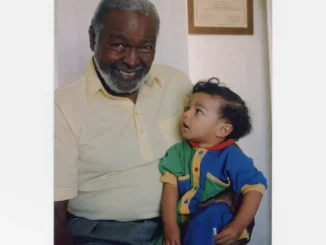
★★★★
Elvis is a fast-paced, hyper-stylised rollercoaster of a film that follows cautionary tale of the King of Rock and Roll’s dazzling, controversial, and ultimately tragic music career.
As to be expected from a Baz Luhrmann picture, it is an absolute assault on the senses. It is easily in the running for the most editing I’ve ever seen in a film. Yes, I said MOST. The audience is bombarded with every technique in the book. From exaggerated camerawork and cheesy zooms to wild transitions and sleek screen-splitting, the surreal visuals on display are as stylish as they are excessive. Though this at times felt exhausting, never once did it lose my attention. The film’s confident commitment to having its own unique personality is impressive and commendable. Much like the man himself, it most certainly stands out from the competition to say the least.
With such a large focus being placed on the visuals, some people may assume that Elvis is a film that chooses style over substance. However, this most certainly is not the case. Rather than being a mere origin story, the vast majority of the film instead centres around the abusive and manipulative relationship between Elvis and his nefarious manager, Colonel Parker.
Austin Butler’s portrayal of Elvis Presley rivals Rami Malek as Freddie Mercury in terms of accuracy. Whether it’s the voice, the appearance, or the mannerisms, he embodies Elvis in every way. This is even true for his singing, with the actor delivering excellent renditions of several classics with unbelievable precision. His surprisingly nuanced performance also shows the many different sides of the cultural icon, nailing the balance between his on and off-stage personas. For every moment where he appears to be untouchable, there is another that shows how truly vulnerable he really is. Butler emotionally grounds the film, ensuring that the more fantastical and campy elements do not take away from the very human story at its core.
On the other hand, Tom Hanks as Colonel Parker is an entirely different beast altogether. With an immersion-shatteringly absurd accent and extensive prosthetics, I can’t help but compare his performance to that of Jared Leto as Paolo Gucci. The man is a pantomime character, being evil to a cartoonish degree. If it wasn’t for his lack of facial hair, he would have been twirling an evil moustache. A reflection of the Colonel’s despicable real-life counterpart, it is almost unfathomable that a man like him actually existed. This, on top of some hilariously bizarre line deliveries, constantly reminds the audience that they are in fact watching a movie. Yet he is honestly my favourite part of the whole film simply for how entertaining he is to watch (despite his terrible actions).
At the heart of this film is a genuinely engaging true story of music, money, love, and betrayal. We see it all, from Elvis’ humble beginnings and musical inspirations to his skyrocketing rise to fame and fortune. However, this is not just limited to his successes. We also witness the darker side of such stardom, with the countless controversies, painful personal struggles, and his eventual downfall.
However, much like all biopics some details and events are glossed over. Although I would have preferred a more in-depth look at these aspects of the singer’s life, the creators knew that they couldn’t reasonably focus on everything and instead chose not to sacrifice the plot’s forward momentum. This results in the film being very well-paced despite its lengthy runtime.
Overall, Elvis is yet another example of how to do a music biopic right. The film captures the essence of the rock icon, with its larger-than-life style working in perfect synergy with its heartfelt yet tragic story. This is an excellent addition to Baz Luhrmann’s extravagant catalogue of motion pictures, and an absolute must-watch for any Elvis fans. To put it simply – this movie rocks.
James O’Brien



